Regional free trade talks in the pipeline
Updated: 2012-01-09 07:08
By Ding Qingfen (China Daily)
|
|||||||||||
BEIJING - Talks on a China-Japan-Republic of Korea free trade agreement (FTA) are expected to start in the first half of this year, with May seen as the earliest date, following the conclusion in December of studies and research into its potential consequences, a source close to the matter told China Daily.
"If there is no strong opposition from inside the Republic of Korea (ROK), talks on the China-Japan-ROK FTA will be officially launched during the first half of this year, in May at the earliest," said the source from the Ministry of Commerce who asked not to be named.
And he also said that China-ROK FTA negotiations will probably start in the first half of this year.
Reports have said that the timetable and roadmap of the China-Japan-ROK FTA talks will be clarified during summits among the leaders of the three nations. The previous two summits were held around May.
ROK President Lee Myung-bak starts an official three-day visit to China on Monday, during which economic and trade relations will be on the agenda.
During the visit China and the ROK are reportedly set to announce bilateral FTA talks this year.
"There are still uncertainties with the process of trilateral FTA talks, although China is actively advancing them. However, the ROK seems to be more interested in initiating China-ROK FTA talks," the source said.
Feasibility studies about a China-Japan-ROK FTA started among research institutions from the three countries in early 2002.
In 2009 the studies were completed and concluded that the FTA will be beneficial for the three nations.
Research by governments, industries and academies from the three nations started in May 2010. The last round of studies was held in Pyeongchang in the ROK last month when a timetable for the talks was considered.
Premier Wen Jiabao proposed in November to initiate trilateral FTA talks in 2012 during the East Asia Summit on the Indonesian island of Bali.
"China is willing to promote the program, and Japan is OK about it but the problem is there is opposition from inside the ROK," the source from the ministry said.
Zhang Xiaoji, senior researcher at the State Council's Development Research Center and also an expert on China-Japan-ROK FTA issues, said that representatives from various sectors in the ROK, including agriculture, were against a trilateral FTA.
Although research has shown the benefits that the three nations would reap from the FTA, "when to start the talks is more of a political, rather than economic, issue," he said.
The US-ROK FTA, which was signed in 2007, was also challenged from within the ROK on key issues, including opening the agriculture market wider.
Wang Yuzhu, researcher on Asia-Pacific issues at the Chinese Academy of Social Sciences, said agriculture would also be a major concern for Japan when the talks began.
Despite the challenges, "there is little doubt that the talks could start in 2012, if the three nations can reach a consensus on some key issues, including investment," Wang said.
"China's efforts on pushing forward the trilateral FTA could have positive consequences."
Experts said the proposal by the United States on joining the Trans-Pacific Partnership (TPP) will help the process of the China-Japan-ROK FTA.
Leaders of the nine Trans-Pacific Partnership countries, including Australia, Chile, New Zealand, Peru, Singapore, Vietnam, and the US, announced the broad outlines of the TPP agreement in November. US President Barack Obama, along with the other eight TPP leaders, also agreed to seek to finalize an agreement in the coming year.
"Through the TPP, the US expects to take a dominant position in the integration of economies of the Asia-Pacific region and expand its exports to the region," said Yu Miaojie, professor from the National School of Development with Peking University.
But China cannot just wait and see, and it "should actively promote the progress of the FTA talks".
China-ROK FTA
Kim Sung-hwan, ROK foreign minister, said at a briefing in Seoul last week that "both sides basically share the view that a free trade agreement between the ROK and China is needed."
Responding to Lee's visit this week, Foreign Ministry spokesman Hong Lei said at a briefing in Beijing that China hopes it will elevate their strategic partnership "to a new level."
The joint study by China and the ROK, which ended in May 2010 after four years, showed that both countries could witness benefits to their economy if a bilateral FTA was signed.
"Time is right for the two sides to set up the free trade area, and it is highly possible that talks will be initiated soon," Yao Weiqun, assistant to the president of Shanghai WTO Affairs Consultation Center, said.
Zhang agreed. "It would be easier and more motivational for the ROK to advance the China-ROK FTA talks, compared with the China-Japan-ROK FTA."
ROK exports to China from January to November in 2011, the nation's largest market, increased by 17.9 percent from a year earlier to $148.4 billion, according to the General Administration of Customs.
Related Stories
WTO entry catalyst for ASEAN FTA 2011-12-09 08:38
China aims to establish FTA with Japan and South Korea 2011-12-16 07:35
China, ROK, Japan end joint study on trilateral FTA 2011-12-16 20:01
Hot Topics
Kim Jong-il, Mengniu, train crash probe, Vaclav Havel, New Year, coast guard death, Internet security, Mekong River, Strait of Hormuz, economic work conference
Editor's Picks
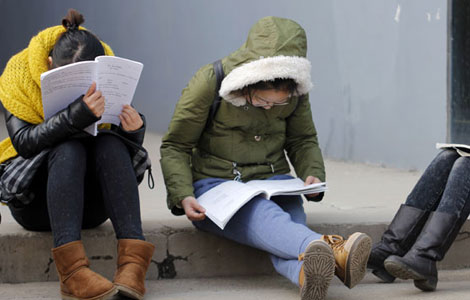
|
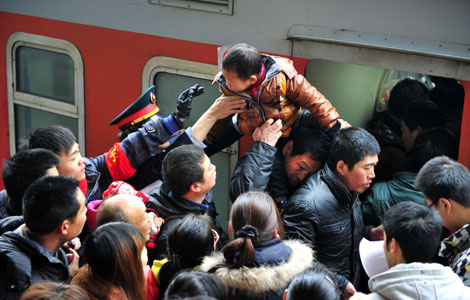
|
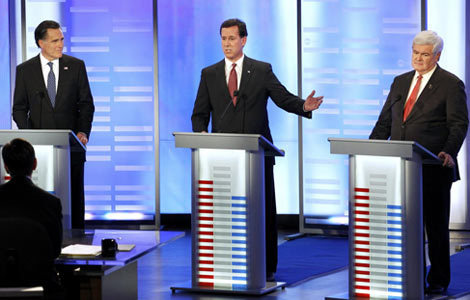
|
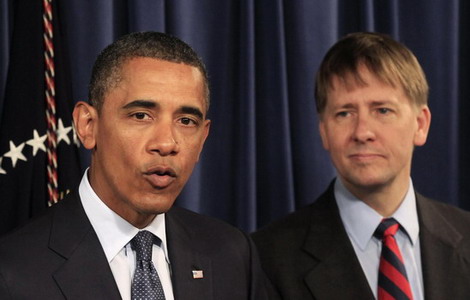
|

|
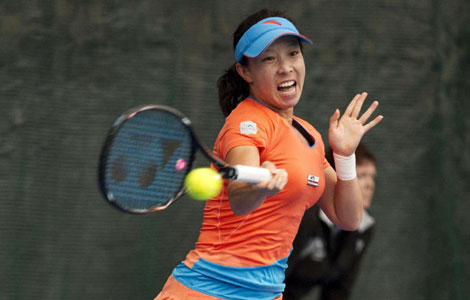
|







